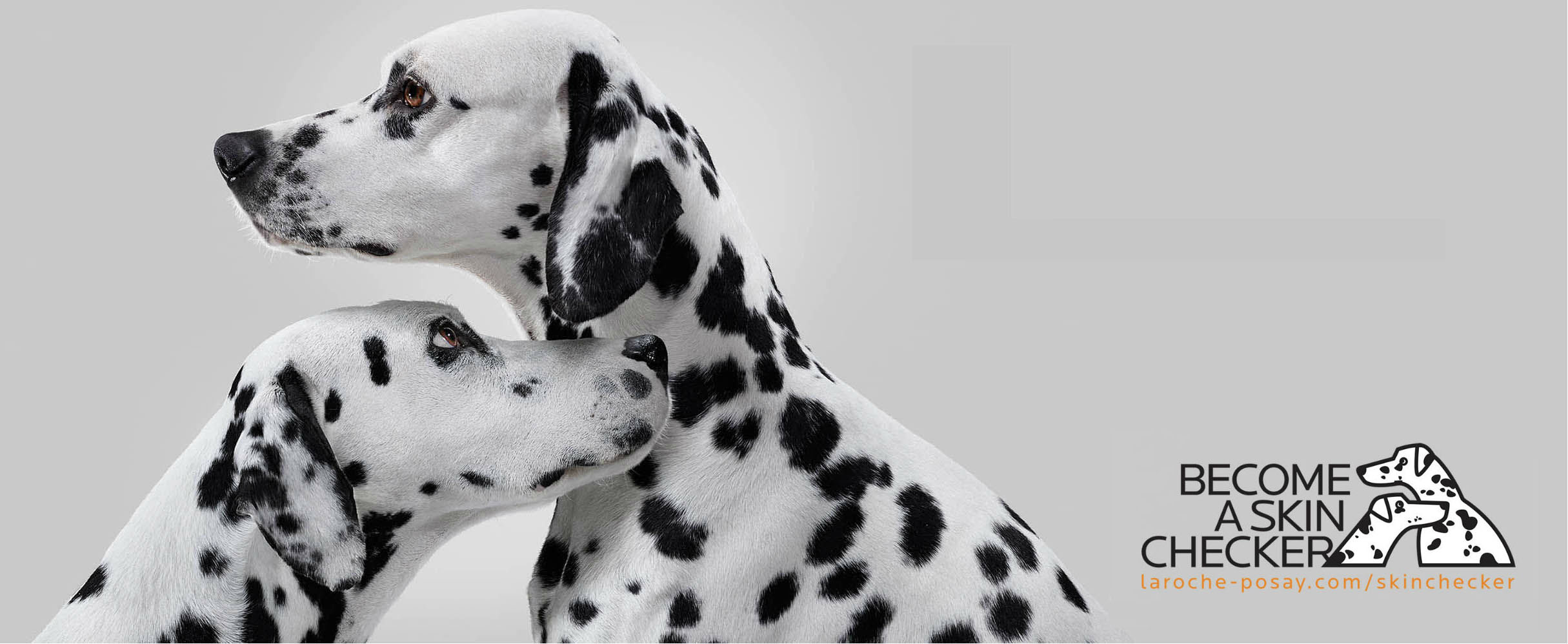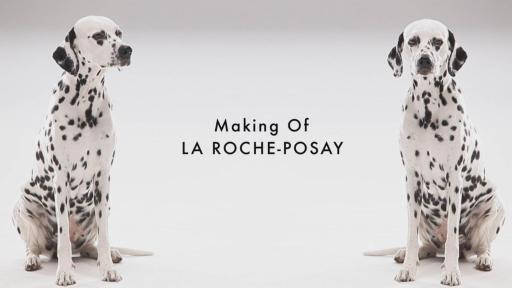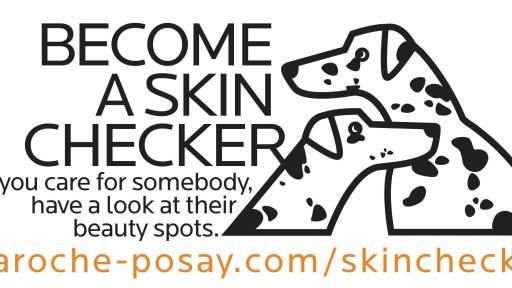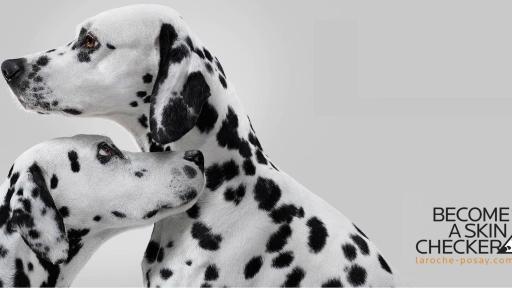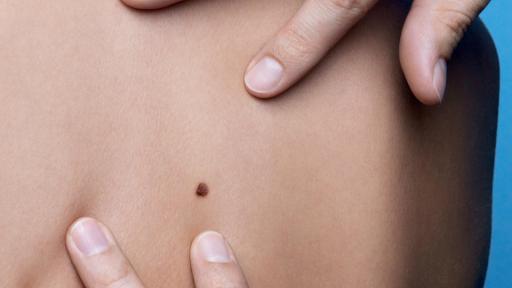.
As Melanoma Cases Continue to Rise, a New Study Reveals That 52% of People Across the World Have Never had their Moles Checked by a Dermatologist
La Roche-Posay urges people to check their moles with SKINCHECKER, an international awareness campaign
If diagnosed early enough 90% of melanoma cases can be treated effectively. An exclusive study carried out by Ipsos for La Roche-Posay in 23 countries across all continents looks into the different attitudes to the sun and general knowledge of the risks associated with exposure. A massive 88% of those questioned are aware of the risks of developing skin cancer when exposed without protection to the sun. However, just 1 in 2 of those questioned have ever consulted a dermatologist for a mole screening and 1 in 4 of them have never even checked their own moles on their body. The brand’s commitment to the cause goes back several years and today La Roche-Posay launches a new viral campaign which tackles the issue of skin cancer prevention with a new and modern outlook empowering every individual to play a proactive role in the melanoma screening process, taking a closer look at themselves and the ones they love.
Media Gallery
AN UNPRECEDENTED SURVEY LOOKS AT ATTITUDES TO SUN EXPOSURE AND SKIN CANCER PREVENTION ACROSS 23 COUNTRIES
It is universal – a majority of people across the world enjoy the sun. However the sun is recognised by most for its paradoxical nature. On the one hand we believe it gives us energy and that a tan makes us look healthy, and on the other there is a widespread recognition of the dangers and risks associated with exposure. 88% of us recognise the dangers of the sun if exposed to it without protection. Whilst there is a clear correlation between risk recognition and prevention practices – indeed the more informed we are the more we protect ourselves from the sun – sun prevention habits are still unsatisfactory as proven by the number of melanoma cases on the rise. Whilst 8 in 10 people protect themselves from the sun, 4 in 10 people don’t think to protect themselves outside of the holidays. More worrying still is the lack of dermatological attention that people seek out in order to check early signs of skin cancer, often visible to the human eye. Only 1 in 3 people in the world check their own moles at least once a year and over half the population has never told a loved one to go for a screening.
For Laïla Idtaleb, Director of the Health Department at IPSOS, “this study highlights several inner conflicts that respondents are going through: between the awareness of the risks and the desire to expose oneself to the sun, but also between the knowledge of the signs of potential skin cancer and the unwillingness to take the leap of a systematic and regular mole check, be it self- or dermatologist provided. The survey also demonstrates how the outcomes of these tensions vary between countries, genders, age groups and education levels.”

World Champions in sun protection
Despite geographical, climatic and educational factors in play, this study carried out across 23 countries reveals some surprising champions in sun protection and skin cancer prevention as well as shedding light on a couple of countries lagging behind.
When questioned about sun protection habits a surprisingly high 34% of Greeks claim to protect themselves all year round, regardless of the season, followed closely by Chile (33%) and Australia (32%). Interestingly enough it is these same 3 countries who try the most to stay in the shade when the sun is out. At the other end of the spectrum Belgium, Denmark and Russia all count just 6% of their population to boast year-round sun protection habits.
Although not necessarily three of sunniest countries in the world, when exposed to the sun Ireland, Italy and Portugal all came out on top for use of sun cream with 69% of their population claiming to apply it to their face whilst the Mexicans, who should know better as they are often exposed to the rays, are only 35% to do the same beaten only by the Russians who are just 19% of their population to apply suncream.
Finally, across the world 87% of parents with children under 12 years old claim to always or often put suncream on their children when exposed to the sun, with relatively little differences across the continents.

A national flair for Skinchecking
Whilst Australia and South America are two of the world’s sunniest regions, it would seem that, against all odds, the Europeans have a natural flair for Skinchecking. Amongst the top in class are Germany, Austria and Italy whose population claim to get their moles screened at the dermatologist the most with 24%, 23% and 20% of their countries doing it at least once a year respectively. Meanwhile Finland is awarded the wooden spoon with a mere 1% of their population claiming to visit the dermatologist to check their moles at least once a year.
“Melanoma is the most serious type of skin cancer, however if recognized and treated early, it is almost always curable,” says Professor Giuseppe Argenziano, MD and President of the International Dermoscopy Society. “It is all the more important therefore to check oneself regularly for any signs of changing or growing moles as well as for the appearance of any new marks on the skin. The fight against skin cancer starts at home and the more people take a look at their skin and the skin of their loved ones, the more people will consult a dermatologist and the more we will be able to make a difference early on.”
Greece, Australia and Austria show themselves to be the pros of self-checking with 52%, 48% and 45% of their population respectively claiming to check their own moles at least once a year. Russia and Brazil, the latter of which you would think would be more careful, seem not yet to have got into the habit with only 5% and 14% of their population checking their moles on a yearly basis. Italy (66%), Portugal (63%) and Austria (59%) are the nations who most often recommend to their loved ones to go and get their moles checked out.

Battle of the sexes
Like for many things, men and women across the world have vastly different attitudes towards sun protection. Whilst men generally prefer to shy away from the sun using techniques such as covering up with long-sleeved shirts (21% of men vs 16% of women) and wearing hats or caps (45% of men vs 32% of women), women are much better at putting on suncream when exposed to the sun’s rays. 69% of women consistently put suncream on their face against just 45% of men. The same significant difference can be noted for the application of suncream on their bodies: only 1 in 2 men slather themselves in suncream compared to over 2 in 3 women.
Furthermore, whilst this study shows that the level of awareness about the risks of skin cancer is globally very high, it would appear that women are slightly better informed in this department. 78% of women believe that the level of exposure to the sun during childhood is linked to the risks of being diagnosed with skin cancer against 71% of men who were asked. Similarly 90% of women recognise that the risk of developing skin cancer correlates to a lack of sun protection against 85% of men.

Young and skin-carefree
Unsurprisingly, teenagers between 15 and 19 years old are the most care-free in their attitude to sun protection and skin cancer prevention, which is all the more worrying when you know that 80% of skin damage caused by the sun occurs before the age of 18. Whilst just 46% of them seek the shade when the sun is out, it is more the adults between 55 and 65 years old who seem to run toward it (55%). Whether a fashion statement or just plain rebelliousness, these teenagers are also wary of sun accessories: they are those who least wear sunglasses (46%) or hats (26%). It comes as no surprise then that the older you get, the more you opt for the hat option with 46% of 55 to 65 year olds wearing them!
35 to 44 year olds however are those who most use suncream to protect their bodies from the sun (63%) whilst young adults between 20 and 24 years old seem to be the more worried about sun damage to their face, applying suncream the most (61%).

Hat’s off to…!
New York, Milan and Paris are famously known to be the fashion capitals. La Roche-Posay and Ipsos questioned inhabitants from 23 countries to determine who’s who in terms of sunwear. Australia, Greece and Finland all opt for the hat or cap look, protecting their faces from the potentially dangerous rays of the sun. The French and Greek meanwhile prefer to don the sun glasses with 74% and 78% respectively claiming to sunny-up with the sun comes out. The Mexicans and the Chileans, as for them, prefer long-sleeved shirts as their sun attire of choice (43% and 36% respectively).
Study methodology
This survey has been carried out by Ipsos for La Roche Posay in 23 countries across the world (Australia, Austria, Belgium, Brazil, Canada, Chile, Denmark, Finland, France, Germany, Greece, Ireland, Italy, Mexico, Norway, Poland, Portugal, Russia, Spain, Sweden, Switzerland, UK, USA). In each of the countries surveyed, 500 to 1000 people (women and men) have been interviewed (samples representative of each national population aged 15-65). In total, 19 569 people have been interviewed from December 3rd 2014 to January 8th 2015.
The interviews were carried out online, except for Russia (face to face interviews), Brazil, Greece and Mexico (telephone interviews).

A CAMPAIGN BORN FROM THE FRUSTRATION OF SEEING SKIN CANCER DIAGNOSES ON THE RISE
A massive 73% of the world population claim to do more for the health of their loved ones than for their own health.
La Roche-Posay, leading dermocosmetic brand recommended by 25,000 dermatologists across the world, today launches “Skinchecker” a new viral international awareness campaign which aims to educate the general public about their active role in the early detection of skin cancer.
Skin cancer is the only type of cancer visible to the naked eye and, if diagnosed early enough, 90% of melanoma cases can be treated effectively. As a longstanding partner of dermatologists, dermatological research and all those who suffer from sensitive skin issues around the world, this campaign is born from La Roche-Posay’s frustration of seeing skin cancer diagnoses on the rise, becoming the 9th most common cancer in Europe with 100,000 new cases diagnosed in Europe alone in 2012.
La Roche-Posay’s commitment to the cause goes back several years and this new campaign is supported locally by dermatologists and national skin cancer organisations and will be accompanied by free local mole screenings across the world.
Today La Roche-Posay wants to engage more people in the fight, not individually but collectively. The campaign aims to create a societal impetus and encourage the propagation and sharing of a clear and simple message: that everyone can become an ambassador in this fight.
“This study comforts us in the knowledge that more people than ever today recognise the risks of skin cancer when exposed to the sun,” says Elisabeth Araujo, International Director of La Roche-Posay. “Melanoma, however, remains the only preventable cancer for which the mortality rate has not declined over the last few decades and we are astounded at the lack of people who currently check their own moles at home. We believe that this campaign can make a real difference in the fight against skin cancer - a fight which starts by taking a good look at ourselves and the ones we love.”

As easy as ABCDE
La Roche-Posay’s Skinchecker ecosystem will be hosted on the brand’s local site. In order to reach and educate as many people in the world, the brand provides concise and memorable information adapted to all audiences. By promoting a simple mnemonic ABCDE, developed and widely promoted by dermatologists worldwide, La Roche-Posay offers Skincheckers a five-point method to quickly identify a potential problem and encourage them to go see a dermatologist as soon as possible.
The platform also includes an area dedicated to the traceable influence map of the campaign across the world and shows conversations that are generated around the topic in real time via a live twitter feed. The campaign is designed to make everything as easy as possible : one click to download the ABCDE method, one click to share with a friend or loved one to encourage them to join the fight and become a Skinchecker too.
Cancer Research UK, http://www.cancerresearchuk.org/cancer-info/cancerstats/types/skin/incidence/uk-skin-cancer-incidence-statistics
Local Press Releases and Videos
- Austria
-
Bulgaria -

-
Czech Republic -

-
Denmark -

-
Finland -

-
France -

-
Germany -

-
Hungary -

-
Italy -

-
Norway -

-
Poland -

-
Portugal -

-
Romania -

-
Russia -

-
Slovakia -

-
Sweden -

-
Switzerland French -

-
Switzerland German -

- United Kingdom
-
USA -

Right click and select "SAVE-AS" to download the above videos
Local Infographics:
World attitudes towards the sun
Denmark
Finland
Germany
Norway
Portugal
Sweden
Czech Republic
Slovakia
Hungary

